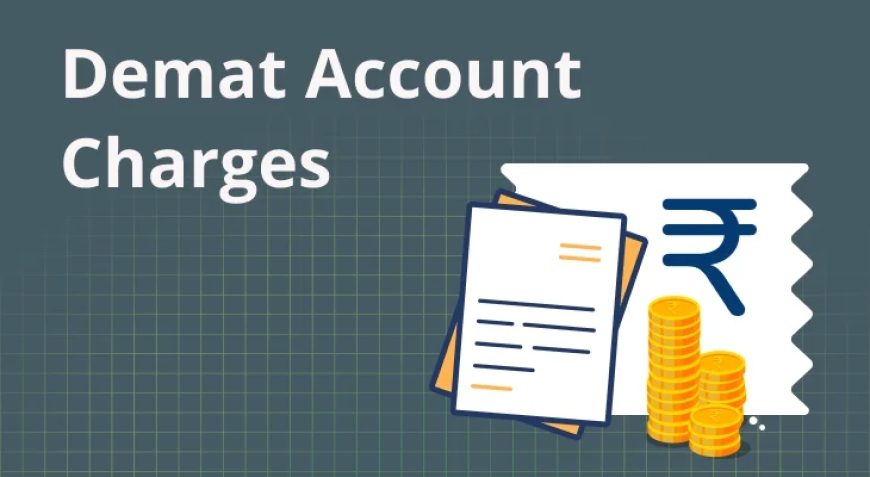Are You Overpaying? 9 Demat Account Charges You Need to Know About
Understanding these fees can help you avoid paying exorbitant ones as they can vary greatly depending on the broker.

A crucial first step for investors wishing to trade stocks is opening a demat account. As of mid-2024 India had over 16 crore demat accounts and thousands more are being opened every month demonstrating the growing desire of the populace to engage in the financial markets.
However since broking firms charge different fees it's important to know the costs before opening a demat account. Understanding these fees can help you avoid paying exorbitant ones as they can vary greatly depending on the broker.
9 Demat Account Charges
These nine significant demat account fees may have an effect on your investing path.
1. Fees for Opening an Account.
The majority of brokers charge an initial fee to open demat account online. While some broking companies offer a three-in-one account that combines banking demat and trading others might only offer a trading and demat account combination.
As a promotional offer the account opening fee might be waived depending on the broker so it's good to keep an eye out for any special offers. Angel One for instance currently provides free demat account opening.
2. AMCs or Annual Maintenance Charges.
In order to keep your demat account active there are annual maintenance fees. The average AMC fee is between Rs. 250 and Rs. 750 though some brokers impose a quarterly fee. For example Zerodha charges Rs. 75 plus taxes on a quarterly basis with an AMC of Rs. 300 plus taxes.
3. Brokerage Fees
Brokerage fees which are charged for each transaction are crucial for traders. Fees can take the form of a fixed amount, a portion of the transaction value or both. There may be a percentage fee for full-service brokers (e. g. 3. 0–5%) but discount brokers such as m. Stock offers lifetime zero brokerage on all products with a one-time account opening fee.
4. Government Fees and the Securities Transaction Tax (STT)
STT is levied by the government on securities transactions the rates vary depending on the type of transaction. For example STT is 0 percent for intraday equity sales and 0 percent for equity delivery trades. Effective October 2024 STT rates on FandO trading were raised as part of Budget 2024. There are additional fees such as SEBI turnover fees and exchange fees (imposed by the NSE or BSE).
5. DP (Depository Participant) Fees.
Demat account charges which are normally assessed per share are applicable whenever shares are taken out of your account at the time of sale. Charges vary by broker for instance m. Stock charges Rs. 12 per scrip while Zerodha charges Rs. 13. 5.
6. Charges for Calls and Trades.
Brokers frequently impose fees if you decide to trade through customer service as opposed to online platforms. In contrast to Zerodha which charges Rs. 50 per order Angel One charges Rs. 20 per order.
7. Charges of Pledging
There are fees associated with pledging and unpledging shares if you require a loan secured by shares. Each script has a different fee for instance Zerodha charges Rs. 30 and Angel One charges Rs. 20.
8. Gateway Fees for Payments.
Depending on the method payment gateway fees might be incurred when transferring money into your trading account. Generally speaking UPI transfers are free but net banking frequently charges a nominal fee. For each net banking transaction Zerodha charges Rs. 9.
9. GST
The overall cost of trading is increased by the 18 percent GST that is applied to various brokerage and service fees.
Selecting the Best Broking Company.
In order to choose the best broker one must weigh these fees against the features and advantages they provide. Regular traders might prefer a lower brokerage but long-term or casual investors might value minimal AMCs. Aside from the prices, different brokers also provide different trading platforms, customer service choices and other features that might be worth more.
In Conclusion
By being aware of these fees you can select a demat account that best suits your financial objectives. You can maximise your returns and avoid hidden fees by choosing the right broker regardless of whether you're trading actively or investing for the long run. To find the broker that best suits your needs, always compare brokers based on both price and services.
What's Your Reaction?






















